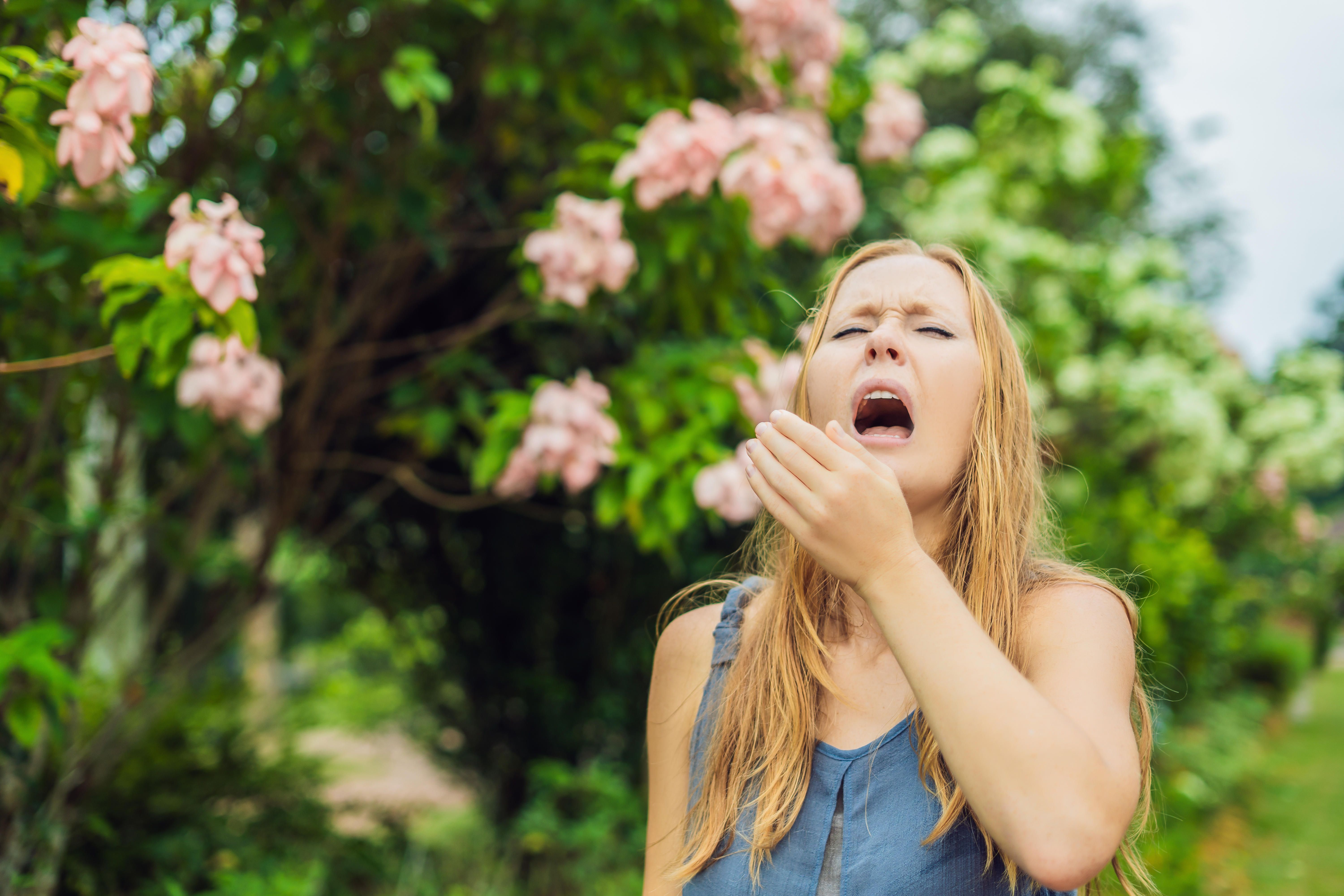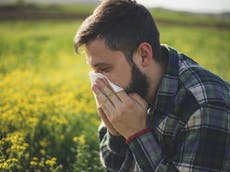7 tips and tricks for hay fever relief
Pollen counts are forecasted to reach very high levels as temperatures rise this week

Your support helps us to tell the story
From reproductive rights to climate change to Big Tech, The Independent is on the ground when the story is developing. Whether it's investigating the financials of Elon Musk's pro-Trump PAC or producing our latest documentary, 'The A Word', which shines a light on the American women fighting for reproductive rights, we know how important it is to parse out the facts from the messaging.
At such a critical moment in US history, we need reporters on the ground. Your donation allows us to keep sending journalists to speak to both sides of the story.
The Independent is trusted by Americans across the entire political spectrum. And unlike many other quality news outlets, we choose not to lock Americans out of our reporting and analysis with paywalls. We believe quality journalism should be available to everyone, paid for by those who can afford it.
Your support makes all the difference.Incessant sneezing, runny, red hot nose, dry itchy eyes and a banging head from wheezing all the time, it’s exhausting!
So far it’s really proving to be far from a summer of fun for hay fever sufferers.
While we love verdant trees, green grasses (grass pollen being the most common cause of hay fever coming into July) and flower beds to delight our bees and boost our picnic plans, the pollen plants release cause any number of allergic reactions.
According to Allergy Ireland, about 25 per cent of all Europeans suffer some type of nose/sinus/chest allergy and this is set to rise to 50 per cent within the next decade
Hay fever sufferers should have antihistamines handy and should visit their GP if things get really bad, but in the meantime, here’s how to help ease any irritation, at least a little…
1. Be prepared with an app
My Pollen Forecast Pro UK is cited as one of the best apps for tracking the pollen count and your allergens. With a five day forecast, a diary feature to track your allergies and a live pollen map, at least it can help you prep for the great outdoors. Available on the App Store.
The Asthma Society of Ireland offers a similar app with a pollen tracker for daily updates on pollen levels around Ireland, including a forecast and predictions for the following day. Plus it’s free.
2. Keep the windows closed
Sunshine and blue skies? It’s only natural to want to throw open the windows. Unfortunately, this can let all those nasties in, so try to avoid opening them during peak pollen hours of late morning and late afternoon; and close them at night when there’s a high pollen count too.
3. Vaseline can help in various ways
A godsend when you have dry lips, eyelids or cracked skin, Vaseline can also help soothe and protect your nose. Try smearing it inside each nostril to ease any soreness and catch pollen entering the nasal passages.
4. Take a cool shower
If your eyes are streaming and you can’t stop sneezing, take refuge under the coolness of cold running water. Not only will it help ease symptoms, but you should wash your hair and change your clothing if you’ve been spending any length of time sitting or working outside. If a shower isn’t practical, put a cold facecloth on your face and lie down for a few minutes.
5. Used tea bags can help ease puffy eyes
Make the most of your morning cuppa by putting used tea bags in the fridge and use them as a cold compress to help relieve any swelling and soothe sore, itchy eyes. Cucumber slices can work too.
6. Keep your face mask on
Face masks have become so much the norm, you may as well use them to filter out particles of pollen. Especially with summer socials in full swing, if you’re going on a picnic, it’s windy or you have to mow the lawn… eek!
7. Wear wraparound sunglasses
Fashionable, sporty and with a fair chance of slightly increased protection against pollen getting in your eyes, a cool pair of wraparound sunnies is your best summer investment – an A-list accessory with benefits.

